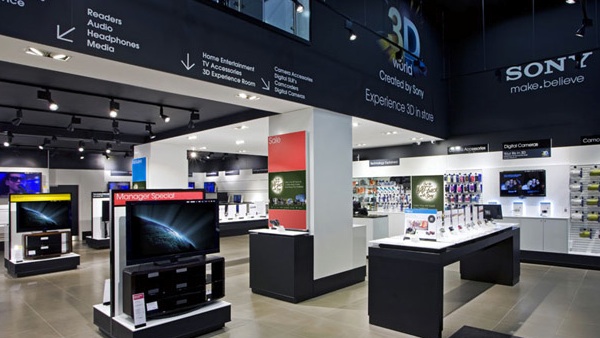We’ve reported extensively on the decline of Sony’s stock which has hit a new 25 year low. After the drop in stock prices and the company recording a record $5.7 billion annual loss, many analysts began to reconsider their position on the electronic giant which caused the company’s prospects change to ‘sell,’ down from a ‘hold’ position. While many attribute Sony’s decline the past few years with their inability to compete with Apple in the mobile market, Sony’s woes began nearly a decade ago as consumers and the industry began to transition from rear projection televisions to the newer and thinner LCD technology. Sony, then the largest TV manufacturer, downplayed the new trend and was slow to adapt LCD, allowing room for companies like Samsung to offer more models. As Samsung continues to eat into Sony’s TV share, the company was able to leverage its size for better component pricing and beating Sony in the one area consumers probably care the most about, price.
Despite superior products, Sony has reported 8 years of losses for their television business while this year will likely mark the 9th consecutive annual loss from selling TVs. To get into the growing television business, much like the PC business, many competing companies like LG, Vizio, Sharp, and Samsung soon entered into a price war with one and other, driving the price of LCD TVs down drastically. While the move resulted in better prices for consumer, now like the PC business, there was little to no profits left in each unit sold while other would sell at a loss, hoping to drive up their revenue and making profits else place.
Now, global TV shipments fell for the first time since 2004 resulting in Sony and Samsung, the number 3 and number 1 TV manufacturers, to take a new approach to pricing their televisions which would no longer allow retailers to offer discounts. More details, after the jump.
With TV sales slumping as consumers turn their attention to mobile products like smartphones and tablets, manufacturers like Sony and Samsung have entered in a new agreement with retailers to help reduce their financial losses on TV sets sold. Under the new deal, U.S. retailers would maintain minimum prices for TVs to boost profitability as global demand declines. This means that TVs from the two companies cannot be sold under MSRP, cutting the sometimes large discounts you see at Best Buy and Amazon.
Sony has in fact taken this one step further by including camcorders, audio players, and tablets, though they’ve excluded Vaio computers. Such a move would limit the ability of retailers to enter in price wars with one and other, thus limiting the drop of consumer product prices and help stabilize the market. In 2008, Sony initiated a similar policy for their digital cameras.
LG, the world’s number 2 TV manufacturer has not entered into this agreement with retailers though depending on how this pans out for Sony and Samsung, that might change. Despite popular belief, such a move does not violate U.S. laws and has been practiced by Apple for over a decade where retailers offer the same price on their line of products.
Discuss:
Is Sony taking the right measure to help protect their bottom line and the TV industry?
[Via Business Week]


You must be logged in to post a comment.